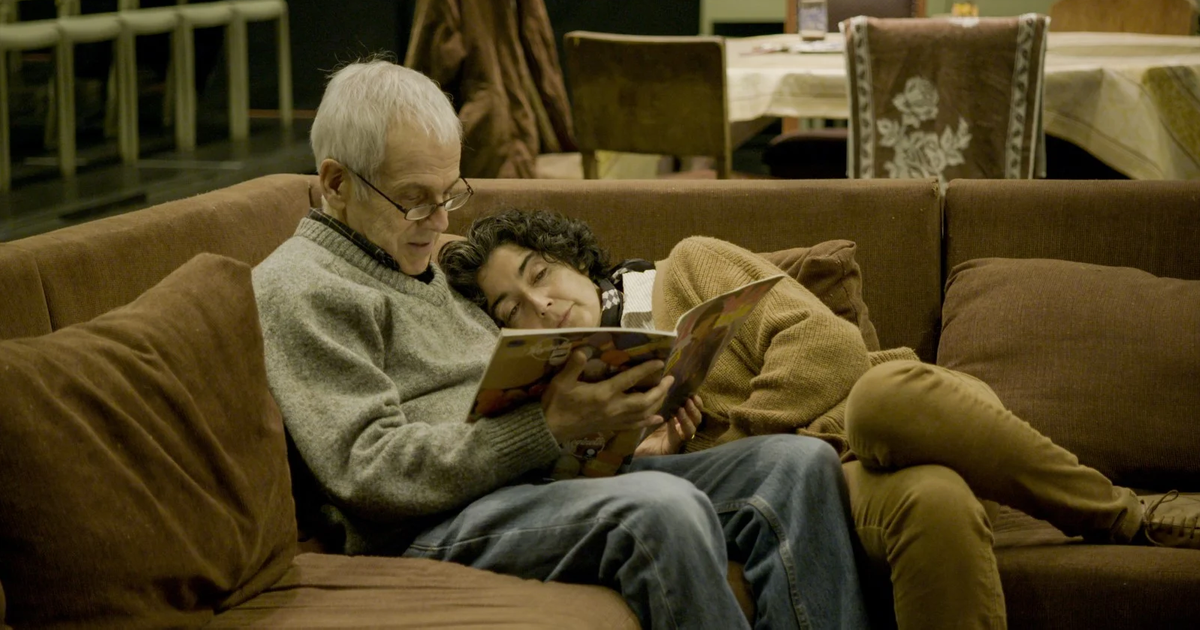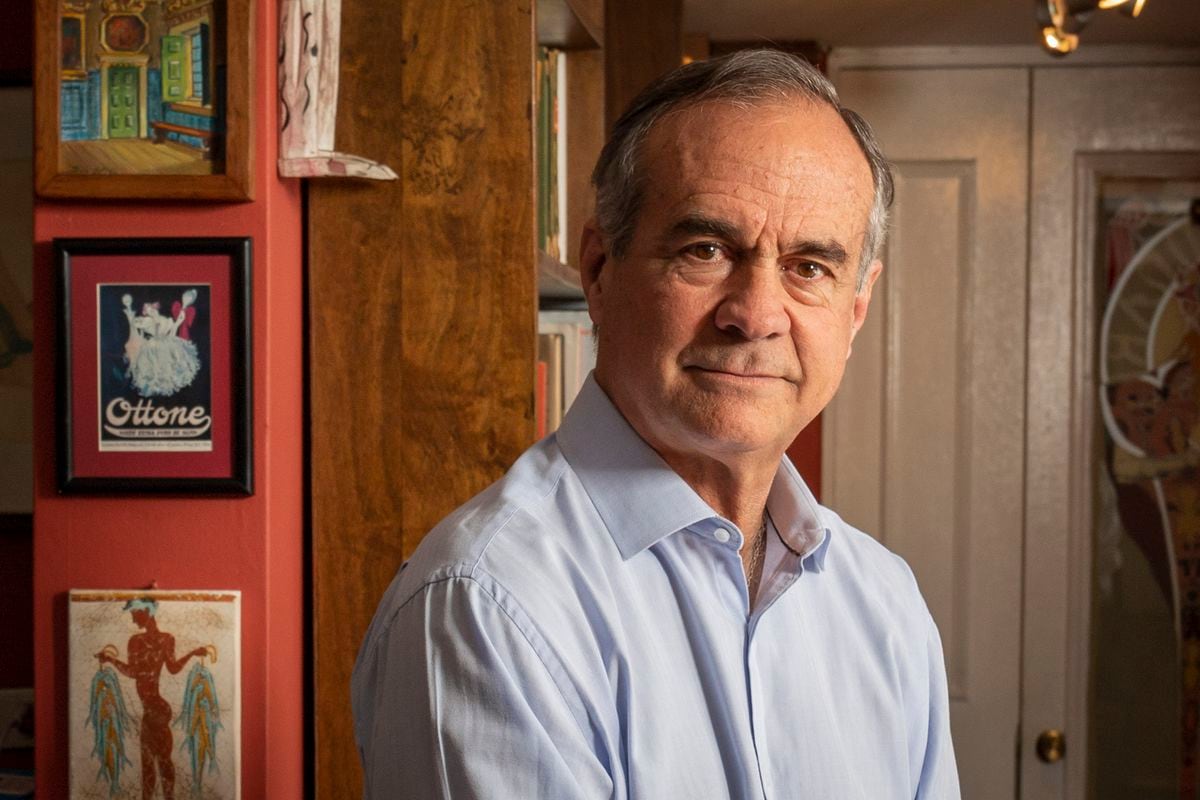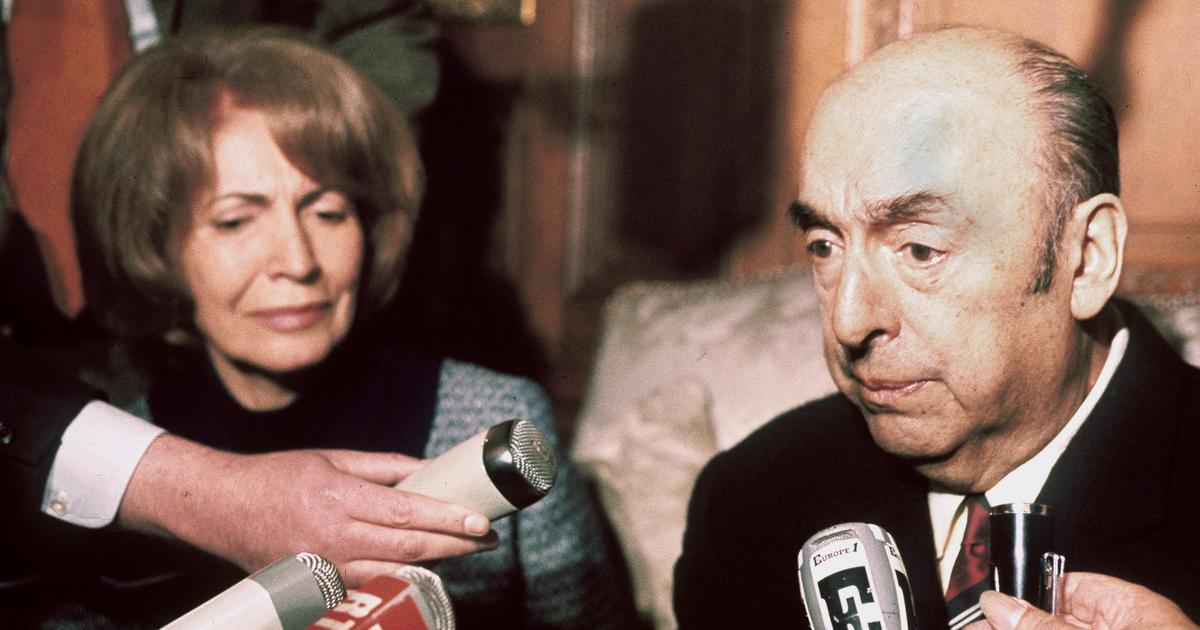Television presenter Patricio Bañados, in the booth of Radio Beethoven, in Santiago (Chile). Catholic University of Chile
During this Sunday and while all of Chile was attentive to the counting of votes for the elections of constitutional councilors, Chilean journalism received painful news. Patricio Bañados, television presenter and one of the key media figures of the second half of the twentieth century, had died at the age of 87. His family reported that the death occurred in his apartment in the commune of Las Condes, in the eastern sector of Santiago de Chile.
The reporter, host and announcer was an emblem of the media, being one of the pioneers of Chilean television. He was in charge of covering historical events for the South American country such as the 1962 World Cup. He worked in European media such as the BBC and Spanish Television, being part of the University of Chile Channel, a signal that is currently known as Chilevisión after passing to private control.
Bañados achieved public recognition for his work on radio and channels, but also for defending his convictions. During the dictatorship of Augusto Pinochet, and in the midst of intense persecution of opponents, he sought to challenge the regime by preventing the delivery of information manipulated by the regime. He was also the emblematic face of the No campaign in the 1988 plebiscite, which ended the military-controlled government.
More information
Patricio Bañados: 15 minutes were enough to end 15 years
The political origin of Patricio Bañados
The journalist was born in 1935 in Santiago de Chile. He was the son of a family with political ties since his father, Guillermo Bañados Honorato, was a senator for the Democratic Party, a formation that in the late nineteenth century represented the interests of the working classes. He studied law at the University of Chile, a career he did not pursue due to his interest in communications. In 1954, with only 19 years of age, he began his work as a radio announcer.
Television pioneer
His powerful and clear voice opened space for him in the media, going from radio to an incipient television. In 1961 he was part of the newscasts of the experimental Channel 9 of the University of Chile. The following year followed the details of the World Cup organized by the South American country, an event that allowed the expansion of the screens to Chilean homes. He was also the voice of the first issues of the presidential public accounts, which were traditionally made on May 21.
The confrontation with the dictatorship
In 1975, and after working abroad, Patricio Bañados found himself with a Chile in full dictatorship. In those years he went to work at Televisión Nacional de Chile (TVN), a state signal that was controlled by the military regime, and then at Channel 11 of the University of Chile, also with government influence. Despite this, the journalist had a defiant attitude, which he showed in 1980, when in a newscast he had to report on an act of the opposition on the eve of the plebiscite that ratified the implementation of the Constitution currently in force. A few years ago the late broadcaster said that in a news program he was asked to read a manipulated information about the historic speech of former Christian Democrat President Eduardo Frei Montalva (1964-1970), to which he refused. Shortly after, he was threatened with dismissal.
His position against the dictatorship directly committed him to the plebiscite of 1988, being one of the faces of the electoral strip that defended option No. He then participated in the electoral campaign of former President Patricio Aylwin (1990-1994), which began the government of the center-left Concertación. In an interview with EL PAÍS in October 1988, the journalist explained his reasons for being a detractor of the regime. "Human rights; Everything can be summarized in these two words. Human rights begin to be violated since democracy disappeared when a person imposed his will on the country. Since then, all kinds of abuses and horrors have inevitably been revealed, the disappearances, the torture, the unclarified crimes," he said.
Emblem of Chilean public television
In his last years of career Bañados became an emblematic face of public television, being in charge of cultural and reflective spaces broadcast by TVN. Some of his programs were El Mirador and Ovni. In parallel, he was the official announcer of the Military Parade, the annual parade held by the Armed Forces and Carabineros of Chile in commemoration of the Glories of the Army. The public television station fired him in 2005, and he has been off the screen ever since.
Bañados will also be remembered as a broadcaster of classical music on radio stations. Between 1986 and 2019 he was the main voice of Radio Beethoven, a station dedicated to this musical genre. He then continued at Radio Beethoven UC, operated by the Pontifical Catholic University of Chile.
Reactions to his death
Patricio Bañados died in the middle of election night, provoking multiple reactions from the political world. President Gabriel Boric thanked them for their professionalism and mentioned that "the calm and hope of their voices in dark moments will always accompany us." Former President Ricardo Lagos (2000-2006) mentioned that the journalist "was always consistent" and defended freedom of expression.
Yesterday Patricio Bañados left us. The calm and hope of his voice in dark moments will always accompany us. Thank you for your courage, lucidity and professionalism, which are so missed in the daily debate. A big hug to the family.
— Gabriel Boric Font (@GabrielBoric) May 8, 2023
Patricio Bañados was always consistent. As a journalist, he defended freedom of expression and oriented his work towards culture. His courageous role as the face and voice of the No Strip, conveying commitment and conviction, was fundamental to the return of democracy.
— Ricardo Lagos E. (@RicardoLagos) May 8, 2023









